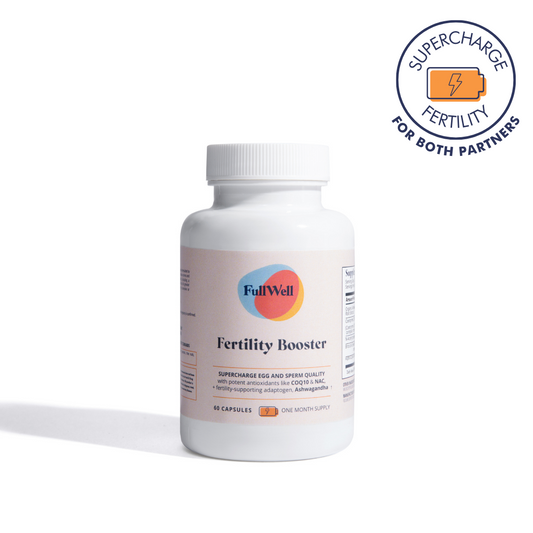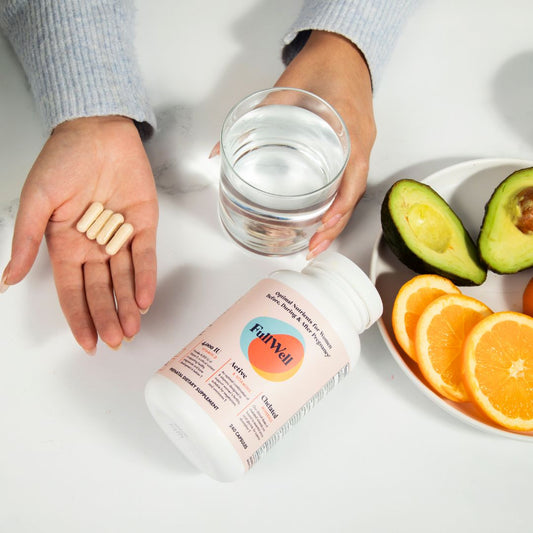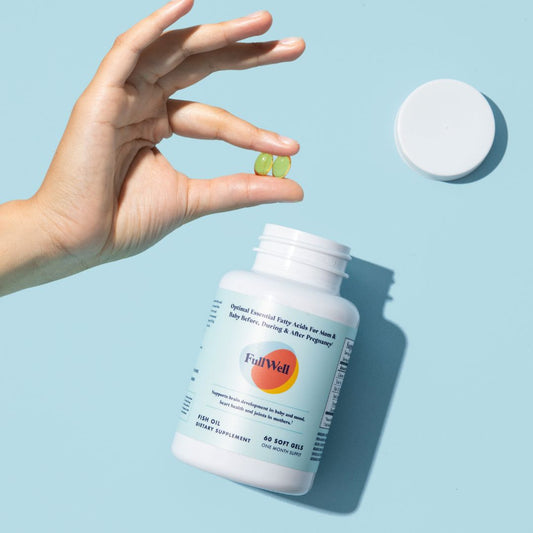The Fertility Index: Terms for Preconception, Pregnancy, and Postpartum
Read more

This post is a must-read. Even if you are not trying to get pregnant, this information is for everyone living in our modern world.
Unfortunately, they are common and pervasive in every aspect of our lives. You can’t avoid them unless you live off the land in Siberia. (Though… the world’s largest lake in Siberia contained some level of chemical contamination from an old Russian paper plant, so... also, Siberia is cold.)
Once we define what they are, we will touch on the 4 Ps, or four main places you'll encounter endocrine disruptors. Then, we'll cover what to do when you cross paths with these chemicals so you can implement our strategies and steer clear.

Endocrine-disrupting chemicals can have estrogenic, androgenic, antiestrogenic, or antiandrogenic properties. This means they can:
And that's just the tip of the iceberg. It’s ideal that these core, essential functions of the body are working in peak condition for everyone, but especially if you are trying to conceive.
Yes, you read that correctly! It’s why we at FullWell are so passionate about educating on this topic. By now, you're probably a little nervous, but remember: The solution isn’t to move to Siberia or completely overwhelm yourself (or your budget) by changing everything about your lifestyle.
Let's break down some of the biggest offenders and look at practical strategies to limit your exposure.


All of these things are endocrine disruptors. We know what you're thinking. If endocrine disruptors are chemicals that can interfere with hormones, it's a little scary to find them hiding in many everyday products, especially considering that they can take such an enormous toll on your health. The 4 P’s negatively impact your hormones and your body’s natural detoxification system, nutrient metabolism, gut health, mental clarity, cognition, and the development of different diseases.
Probably a lot, right? (And it’s honestly probably even more than you think.) Because of how frequent our exposure is to these things, it can sometimes feel a little overwhelming to tackle this problem. Below, we go into the 4 Ps, highlight their impact on your health, and explain how you can minimize exposure without overhauling your entire life.
Let’s dive in!
One of the most well-known chemicals found in plastic is Bisphenol-A (BPA). BPA is an industrial chemical used to make plastics and resins since the 1960s. BPA is problematic because it mimics estrogen in the body. As a result, it can cause tons of damage by disrupting hormones, harming your reproductive system, and negatively impacting brain development and metabolic function. This industrial chemical has also been linked to cancer and other severe disorders. And while BPA is dangerous for everyone, the developing fetus and babies are the most vulnerable age groups when it comes to BPA’s toxic effects.
You can find BPA hiding in products like canned food, glass jars, bottle lids, aerosol cans, beverage cans, coffee cans, and even athletic wear! That said, it’s not a reasonable goal to completely eliminate exposure to BPA. However, there are steps you can take to reduce exposure to BPA.
Minimize plastic exposure:
Unfortunately, as concern about BPA has grown among consumers, the industry has adapted by creating new (likely equally dangerous) chemicals to replace it that have yet to be studied. So stick with the above tips to avoid BPA and its replacements.
Most people don’t realize that many pesticide residues hide everywhere. Pesticides are commonly found on conventionally grown produce. This is true even after it’s been washed or peeled.
A lot of research supports the fact that pesticides can negatively impact fertility and pregnancy outcomes. For example, this study found that higher consumption of high-pesticide residue fruits and vegetables was associated with lower probabilities of pregnancy and live birth following infertility treatment.
This is more than the outdoor smog you think of when you hear “pollution." Pollution is anything that reduces air quality in your environment. This includes air fresheners, candles, plug-in and spray bottle room deodorizers, perfumes, etc. Removing air fresheners from your home is a super simple way to minimize air pollution.
Unfortunately, these toxins can't be avoided entirely in the real world. They’re everywhere. You’ll notice how common they are in public spaces once your nose adjusts to not having them in your home!
Minimize pollution exposure:
Look at the ingredients in your lotions, make-up, perfume, shampoo, conditioner, deodorants, etc. A couple of significant offenders to watch out for are known hormone disruptors: phthalates and parabens.
The word “fragrance” on the ingredients list is often just a mask for other hidden chemicals. Believe it or not, the cosmetics industry can get away with this. As previously mentioned, parabens and phthalates are two of the most common and problematic toxins in personal care products (often hiding under the term “fragrance”). Parabens, a group of endocrine-disrupting chemicals, act as a preservative in personal care products, pharmaceuticals, and food products. Phthalates, another endocrine-disrupting group of chemicals, are used in plastics, solvents, and synthetic fragrances.
Even though it can feel overwhelming to start decreasing your exposure to these toxins, it can be very beneficial, especially if you are trying to conceive. Doing so can support your endocrine system, your body’s natural detoxification process, nutrient metabolism, gut health, mental clarity, and cognition, and provide protective and restorative effects on sperm and eggs to help produce healthy DNA and support embryo development. In addition, the best-kept secret is that reducing exposure to the 4 Ps isn't all that challenging! Choose from the easy swaps highlighted above and get the most bang for your buck when reducing your exposure to toxins. Start by implementing one or two actionable strategies, and go from there. We believe in you!